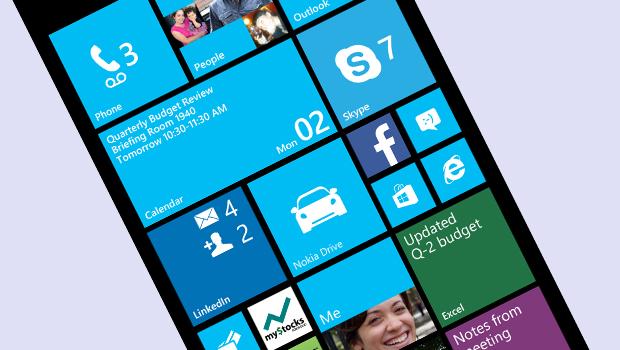
I imagine some of my readers are probably getting annoyed at the fact that I have been writing so many articles regarding Windows Phone 8 lately, and given that most people don't use Windows Phone 8 I could see some frustration coming out of my recent influx of articles concerning the platform. However, since owning one of my very own it has been nothing short of a learning experience as I figure out what I do and don't like about the platform from a first-hand, in depth experience. It has been eye-opening for me, to say the least, and I find that I have a lot to say about it.
That being said, hold on to your seats because here's another article pertaining to Windows Phone 8.
As many of you know, the company behind Windows Phone 8 is PC giant Microsoft. Although Microsoft is extremely popular in the PC world, the same can't exactly be said for their smartphone platform. Windows Phone 8 has a long way to go to catch up with the likes of iOS and Android. As you also may know, a lot of changes have been going on behind the scenes over at Microsoft with their recent resignation of long-time CEO Steve Ballmer, and named the succeeding CEO, Satya Nadella, just a few days ago. While Nadella's succession is indeed an important move for the company going forward, another pleasant surprise comes in the form of a certain Bill Gates returning to an active position within Microsoft. Both of these changes are huge, and both of them are hopefully going to help push Microsoft out of a rut that it seemed to have dug itself into these past few years.
Stepping outside of the smartphone box for a minute, we can take a look at Microsoft on the PC aspect of things. I've been using Windows computers for most of my life, so I've seen the ups and downs of the different versions of Windows released. Of course, my most recent recollections really stand out from Windows XP onwards. It's been kind of a rollercoaster ride on whether I like or dislike the software I'm using. I liked XP, I didn't like Vista; I loved Windows 7 and I hate Windows 8 (on a desktop). Even Bill Gates had issues trying to install Windows 8.1 on his computer upon his first day returning to work, if that gives you any indication on how well the platform is doing. Microsoft is capable of creating good products, but they're also capable of making some very bad decisions.
You can apply the same theory to the smartphone side of things as well. When I talk about Windows Phone 8, I usually describe it as "having potential". I don't think Windows Phone is at its full potential right now. Do I like it? Yeah, I like it. But it's not my favorite, and that's mostly because there are a few aspects of Windows Phone that needs to be improved upon. There are a lot of key features that should have already been available on the platform that will presumably just be arriving with the Windows Phone 8.1 update in April. The app store is decent, but definitely lacking in a lot of ways. The potential is there, but nobody at Microsoft seems to really be taking Windows Phone seriously at this point. Nokia's hardware and Windows Phone users really seem to be the ones that are keeping the platform afloat.
So I'm kind of hoping that the changes within Microsoft will bring good things for Windows Phone 8. Smartphones is an area that Microsoft is going to want to stay on board with. I'm not saying that I think Microsoft needs to work quickly if that means a hasty product as a result, but I do think they need to put more focus on creating the best platform that they possibly can for it. As I said, Microsoft is capable of creating good products and software. Now that they have Nokia, they already have the hardware aspect indefinitely taken care of. All they have to do now is work out the fine details of the actual OS itself; you know, do a little tweaking and sprinkle some improvements here and there. Actually make it seem like they want Windows Phone to succeed.
PCs definitely still have a huge influence in the computing world, but smartphones count as a very close cousin at this point and I think they're just as important, if not more important, to focus on. We're getting to a point where everybody has a smartphone - both of my parents are using smartphones, which if you knew them you would know that that right there is a direct indication that probably every other person in the entire world probably already has a smartphone. My parents never hop on board with new technology, yet both of them ask me plenty of questions regarding what smartphone they should upgrade to next. It's weird, but it just goes to show that it's not just the younger generation that has interest in smartphones. Everybody does, and it really is an important branch to focus on if Microsoft is going to be a part of it.
So with a new CEO reigning over Microsoft and the famous Bill Gates back on board, I have to admit that I do have some high hopes that there will be some postiive changes coming to Windows Phone 8. One day I would like to describe the platform as being just as worthy of consideration as Android and iOS; for now, there it still has a very slim demographic that would benefit from the platform. Without it, I feel like sooner rather than later the amount of articles I can write about the platform is going to dry up.
Images via TrustedReviews, WPCentral